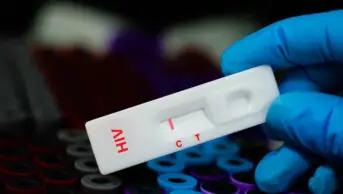Following comments made by the Associated Press in the United States[1]
that dental flossing is a waste of time, there was a media-storm, leaving confusion in its wake. It is hoped that this comment will clarify matters for colleagues in pharmacy.
The response of the British Society for Periodontology to what quickly became known as ‘flossgate’ states: “Floss is of little value unless the spaces between your teeth are too tight for interdental brushes to fit without hurting or causing harm. Therefore, floss is not a waste of time — it is a viable alternative to interdental brushing where appropriate”. This position was echoed by the British Dental Association and Public Health England indicated that it would be reviewing its guidance on flossing.
Subsequently, dental flossing has featured in the BBC 1 programme ‘Health: truth or scare’. It conducted a ‘mini-experiment’ with the Salford Choral Society which showed there was minimal difference in bacterial cultures between flossers and non-flossers, but when a proportion used interdental brushes they did remove more plaque than the floss. What is often forgotten is that for most people flossing requires both instruction (from a member of the dental team) and practice to be effective, just like learning to ride a bicycle. Without these it would not be surprising if it seemed not to work.
In summary, floss has an important role in the daily oral hygiene regimen of individuals with one or more tight, typically small interdental spaces. ‘Flossers’ and ‘non-flossers’ who do not have tight interdental spaces should be advised to use interdental brushes to complement their toothbrushing to help remove plaque and food debris from between their teeth. As a rule of thumb, it is best to use the size of interdental brush which comfortably fills the interdental space — the bigger the space, the bigger the ideal interdental brush. Whatever individuals use for interdental cleaning; they should be encouraged to seek advice and instruction from their dental team.
Nairn H F Wilson
Emeritus professor of dentistry
King’s College London
Ian Needleman
Professor of restorative dentistry and evidence-based healthcare, UCL Eastman Dental Institute, London
President, British Society of Periodontology 2017
References
[1] Should you floss or not? Study says benefits unproven. BBC News 3 August 2016. Available at: http://www.bbc.co.uk/news/health-36962667 (accessed April 2017).


